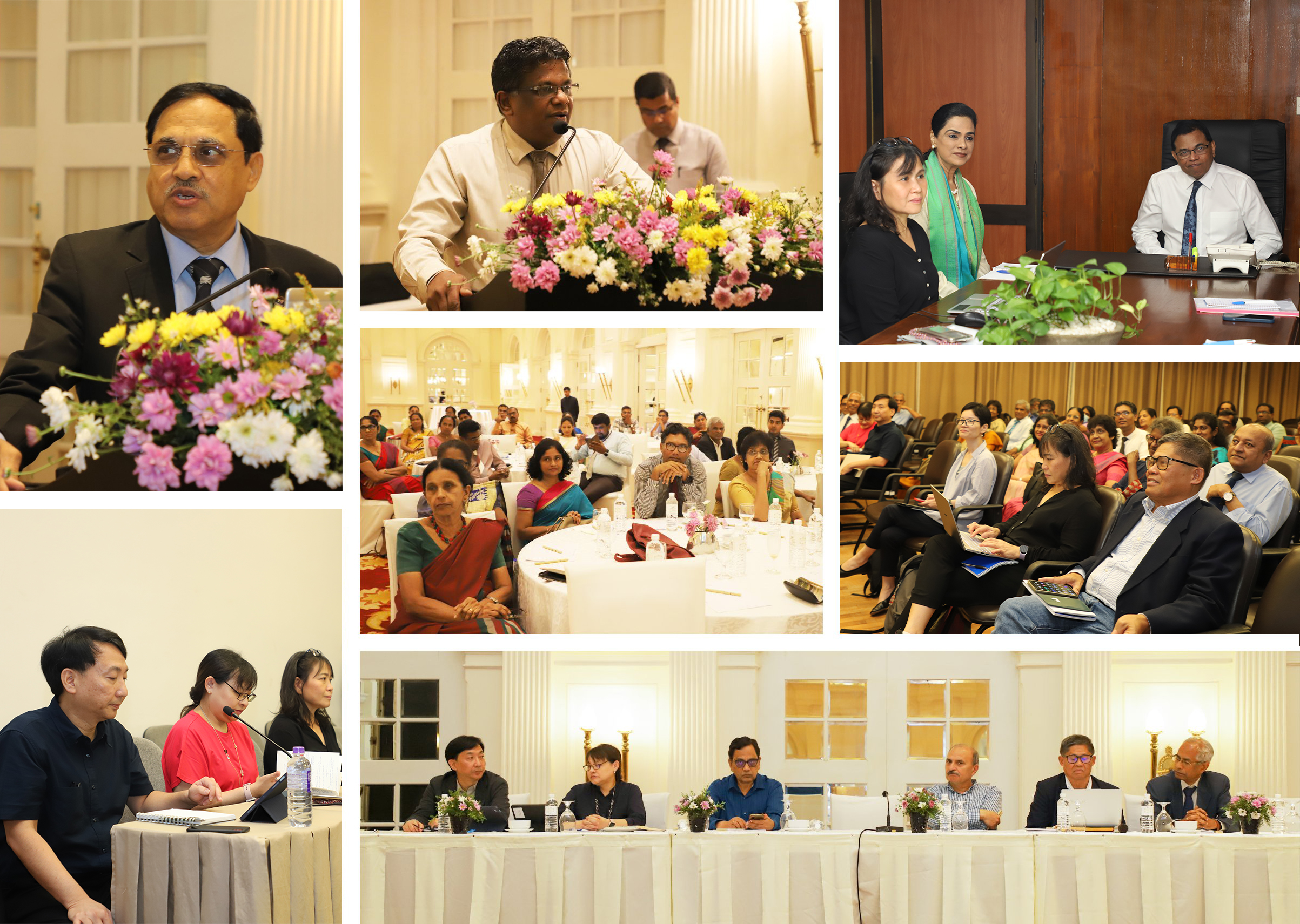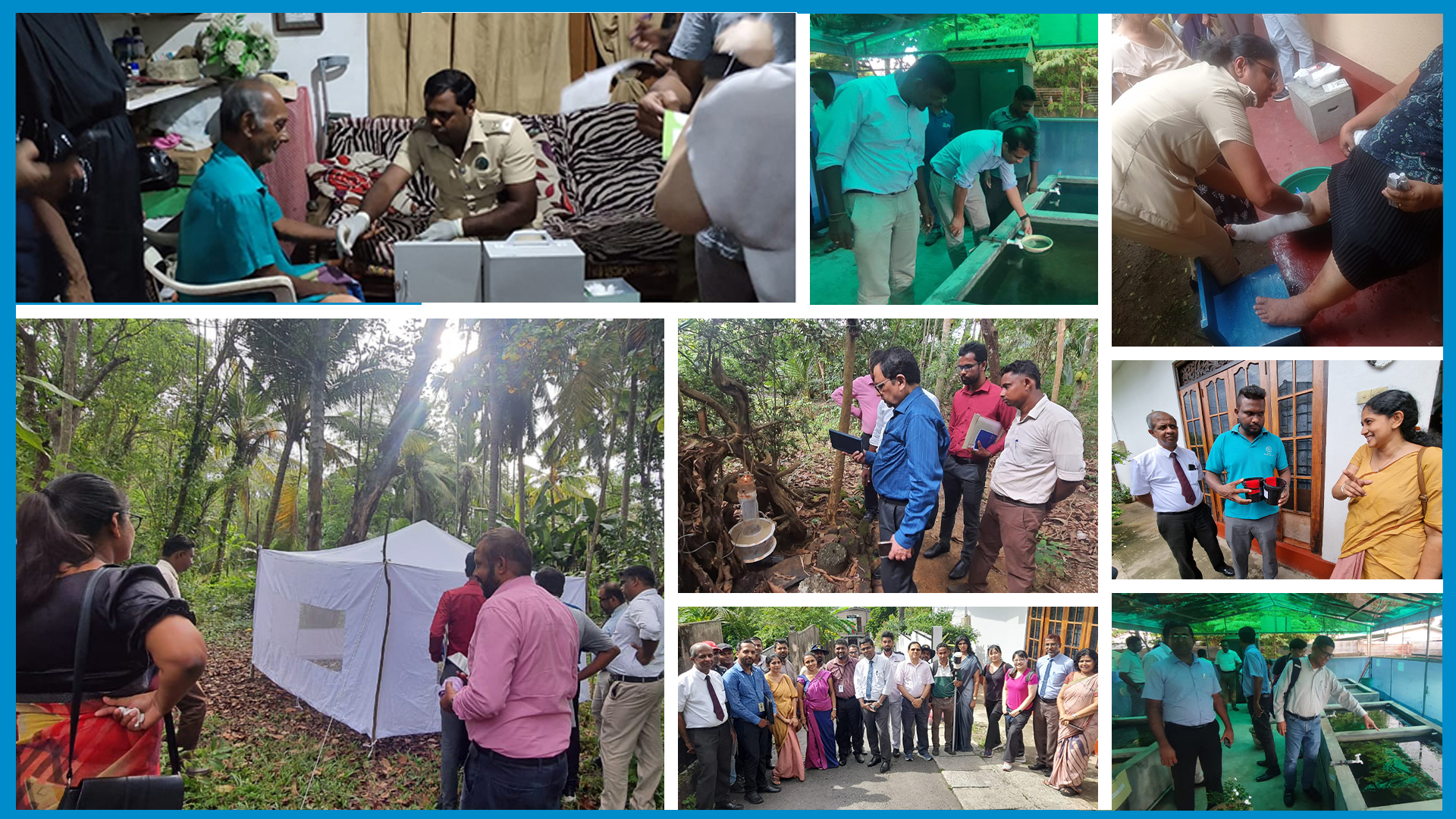The "Global Vector Control Response (GVCR) 2017–2030," approved by the World Health Assembly in 2017, outlines strategic guidance for strengthening vector control to prevent diseases and manage outbreaks. The GVCR emphasizes the need for a comprehensive and integrated approach to vector control, involving several key components such as increased technical capacity, improved infrastructure, strengthened monitoring and surveillance systems, and greater community mobilization. This supports the implementation of a comprehensive approach to vector control thus enabling the achievement of disease-specific national and global goals and contribute to the Sustainable Development Goals (SDGs) and Universal Health Coverage (UHC).

Sri Lanka has invested in a robust health system, which ensures access to free health care for the population. This investment has resulted in remarkable public health gains. It is proven that Sri Lanka is one of the countries having remarkably good health indicators in South-East Asia and Asia.
Vector-borne diseases (VBD) remain a significant burden on public health, particularly in comparison to other infectious diseases. Dengue fever is the most common VBD in Sri Lanka, with an incidence rate of 407.5 cases per 100 000 people in 2023. Although the disease has a low annual case fatality rate of less than 0.1%, it has become endemic in all districts of the country, with large outbreaks occurring every three to four years.
Sri Lanka was declared malaria-free in 2016 since then has not reported any indigenous malaria cases. However, on average 40-50 cases of imported malaria cases are being detected each year. As this poses the threat of reintroduction of malaria into the country, prevention of such incidence needs priority attention. Similarly, lymphatic filariasis was eliminated as a public health problem in Sri Lanka in 2016 and is now in post-validation surveillance phase. However, pockets with higher microfilaria rates when compared with the rest of the country still exist.
Cutaneous Leishmaniasis is becoming a significant public health issue in Sri Lanka. The disease is spread by certain insects, and public lack of knowledge about these insects and their habits is contributing to the disease's spread, particularly in specific areas of the country. Additionally, there is concern about the possibility of Visceral Leishmaniasis.
The need for a comprehensive review of these programs to identify cost-effective ways of controlling all four diseases had been identified by the Ministry of Health which initiated this review. Therefore, a joint integrated comprehensive program review was conducted with the technical contribution of experts in relevant subject areas. This approach proved to be economical, time-saving, and feasible. The objective was to closely review the existing strategies, identify gaps and challenges, and suggest recommendations to improve the programmes.
From May 13 to 20, 2024, Sri Lanka conducted its first integrated vector-borne diseases review mission, positioning it as the second country in the WHO South-East Asia Region to do so.
The programme review team comprised of national experts, external consultants, and staff of the WHO Regional Office for South-East Asia (SEARO), and WHO Country Office. The review team members visited the Medical Officer of Health areas, health offices, provincial laboratories, hospitals, primary health centres, and affected communities in 13 districts across 6 provinces.

Consultations were done with Ministry of Health senior officials, provincial and district level officials, vertical programs teams for each disease and field level officers. In-depth thematic group discussions and consultations at different levels were also held.
Findings from the review were presented at a debriefing meeting held on 20 May 2024, in the presence of senior officials from the Ministry of Health, UN partners and other relevant stakeholders engaged in vector-borne activities.
The following key recommendations were made to combat country-prioritized vector-borne diseases and to achieve the elimination targets effectively:
- Strengthen and sustain competencies in surveillance system by improving case detection and reporting in public and private sectors
- Enhance skills and capacities of healthcare workers, especially at sub-national levels, to implement effective vector control measures
- Digitalize parasitological, entomological and clinical data and undertake thorough analysis for evidence-based decision making
- Strengthen governance and programme management to ensure efficient coordination, resource allocation, and accountability,
- Enhance advocacy, risk communication, and community engagement, and
- Strengthen cross-border collaboration and implement robust documentation practices with data analysis for real-time situation monitoring.
Review team members
- Dr Rajpal Yadav, ( Team Lead) entomologist and insecticide expert and former WHO HQ lead on WHOPES
- Dr Lee Ching NG, Director of NEA Singapore (WHO CC)- Dengue surveillance, prevention and control expert
- Dr Leonard Ortega, retired WHO staff, former Team lead in Global Malaria Programme at HQ
- Dr Mourad Mokni, Faculty of University of Tunis and the Head of WCC on Case Management for Cutaneous Leishmaniasis
- Dr Kapa Ramaiah, Lymphatic Filariasis expert in the SEARO Regional Programme Review Group (former ICMR-VCRC)
- Dr Diwakar Singh Dinesh, sandfly expert from ICMR-RMRI, WCC
- Lynnelle Seow (DD, Marketing Comms Dept, 3PND) who coordinates the annual dengue prevention campaign which covers marketing, media, outreach and partnerships
- Jason Tan (Senior Assistant Director, Regional Office of Environmental Health Operations Group) who coordinates vector prevention and control of central Singapore.
- Dr Risintha Premaratne Regional advisor for malaria- SEARO
- Dr Aya Yajima Regional advisor for NTDs SEARO
